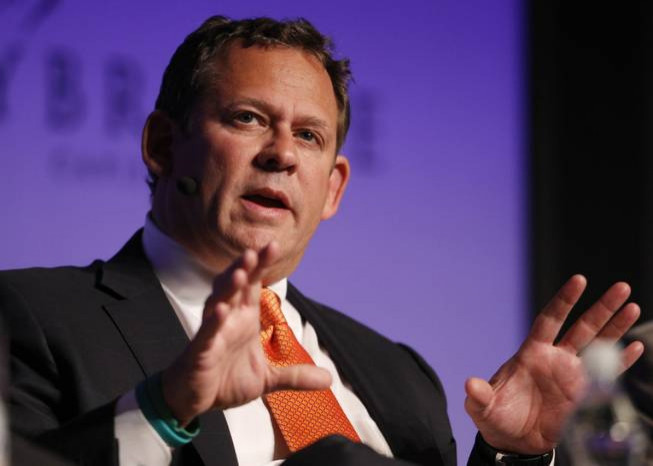Federal Reserve QE Program: BlackRock's Rick Reider Tells The Fed Its Time To Ease Up On Its Quantitative Easing Program

BlackRock Inc. (NYSE:BLK) is urging the Fed to scale back its strategy of quantitative easing. The world's largest asset manager, with $3.79 trillion under management, is switching positions and advising the U.S. central bank to halve its bond-buying program from $85 billion a month to $40 billion-$45 billion, saying the central bank risks spiking inflation.
"Fed policy has had a distorting effect on capital allocation decisions of all kinds at virtually every level of the economy," BlackRock Managing Director Rick Rieder told the Financial Times on Monday.
"It is a very large and dull hammer for markets," Rieder, who oversees $763 billion in fixed-income investments for BlackRock, said.
The New York-based company, which had previously supported the government's debt-purchasing program, said it's now pushing clients toward investments that are less sensitivite to high interest rates, such as five-year bonds as opposed to 10-year or 20-year bonds.
Rieder said he favors government debt with shorter maturity and backs corporate and emerging-market debt and bank loans with floating interest rates.
Rieder estimates that interest rates on 10-year treasuries are about 100 basis points under where they should be because of the Fed's easing policies. As the rates normalize, he said, "losses that occur to fixed-income portfolios will be more and more acute."
Each month the Fed creates new money and uses it to buy $85 billion in government-treasury bonds and mortgage-backed securities. This process, known as quantitative easing, or "QE," injects cash into the economy in an attempt to support growth. The QE program has resulted in a steep increase in the U.S. monetary base.
BlackRock said interest rates should rise this year amid signs of a strengthening economy as bonds rally the most they have in nearly five years.
"The economy is on a reasonably strong footing," Rieder said. "The U.S. labor market faces an array of structural headwinds that are likely to only be overcome in time."
The structural headwinds Rieder referred to include healthcare and pension costs, which have forced companies to hire part-time workers, skill shortages and an aging population remaining in the workforce longer.
While the nation's unemployment rate recently fell to 7.6 percent, workforce participation also declined. The Fed has said it will continue quantitative easing until the unemployment rate reaches a target of 6.5 percent or inflation exceeds 2.5 percent. Nonetheless, BlackRock said it expects a slow fall in the jobless rate, and Rieder said a shift to short-term interest rates isn't likely until 2015.
© Copyright IBTimes 2024. All rights reserved.






















